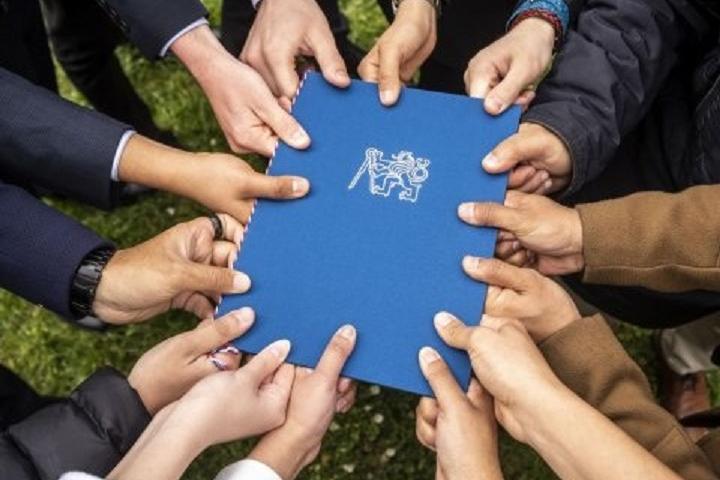
This year's edition has brought a significant change - the expert jury has nominated four winning teams, three of which will advance to the international final of the EuroTeQaThon, which will take place in Eindhoven on 14-16 June 2025. The fourth winning team, whose solution has been identified by the jury as the most promising in terms of commercial development, receives a prize in the form of participation in the Bootcamp organised by IESE Barcelona on 28-31 July 2025.
47 students of CTU and two students of the Secondary Industrial School of Communication Technology (SPŠST) Panská entered the competition. Six companies contributed challenges to Collider 2025: Plzeňský Prazdroj, PRE, Capexus, Pixida, SuSe and Tuluke Foundation.
The jury awarded the best project to Wasteless Office, which addressed a challenge from Capexus focused on waste-free office renovations. The solution offers a greener and more cost-effective alternative to commonly used technologies.
The ReTile team, consisting of students Shehjar Bhat , Conlan Benkang Mah (Faculty of Information Technology ), Jan Plašil (Masaryk Institute of Advanced Studies ), Nozima Nasimova (Faculty of Biomedical Engineering) and Marek Šimík (SPŠST Panská ), who developed a composite material from resin and construction waste, mainly from plasterboard and plaster, won the award for their innovative approach to recycling construction waste. This material is characterised by high compressive strength and after further modification can be used, for example, as a cladding material. In cooperation with Capexus, a business model has been proposed for an independent company that would also accept construction waste from other companies.
The other three advancing teams took on the following challenges:
- PRE: An artificial intelligence model for distribution network load forecasting,
- Tuluke Foundation: Carbonisation of agricultural waste,
- Pixida: Bridging Borders - Sustainable knowledge sharing for global impact.
The success of this year's EuroTeQ Collider demonstrates the high level of innovative ideas and cross-disciplinary student collaboration that can contribute to a more sustainable future.